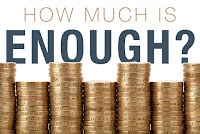The Sunday Times of Malta
12 April 2020
After every economic downturn there comes a recovery. In economic jargon such recoveries are defined by their shape.
A (V) shaped recovery happens when the downturn is overcome and the economy is restored to its pre-recession level quickly. In such case the economic damage is light and quickly forgotten as the economy resumes its long term growth trend. This is a typical cyclical shallow recession that happens in the normal course of events.
A (U) shaped recovery happens when the economy spends quite some time at the bottom of the downturn and the road to recovery is long and painful. In such case the economic damage is quite substantial and the economy may take very long both to reach its pre-recession level and especially to recover its long term growth rate. This is quite what happened with the recession caused by the financial crisis shock of 2008 and the euro crisis of 2012.
An (L) shaped recovery is the worst type of recession where there is such a sharp and deep drop of economic activity, often caused by unexpected shocks causing physical destruction, such as wars and natural disasters, that recovery is very long, painful and at best uncertain.
What shape will be the recession of 2020 caused by the sudden shock of the COVID-19 pandemic?
You have to be a great optimist to believe that the recovery can be (V) shaped. The shock is so deep and wide, sparing no major economy, that in a world that is economically interdependent, the whole world will struggle to regain confidence to restart the economic engine.
It is more likely that the recovery will be somewhere between the (U) and the (L) shapes. Much depends on how long our health priorities will constrain us to keep our economic units on life support if not totally frozen. The longer this takes the more difficult will be the recovery. This must not be interpreted as any appeal to subordinate health priorities to economic objectives. It is presented as factual; the longer it takes to put this epidemic behind us, the harder will be the road to recovery. If anything it is an appeal to heed all advices given by health authorities, which is the only way we can put this health crisis behind us as quickly as possible.
Even though our economy has entered this shock from a position of strength (low unemployment, strong growth, low and reducing public debt to GDP ratio, and several years of fiscal surplus) resources are not infinite. And given the prospect of a long hard slog to recovery, our resources need to be applied judiciously with the long term in perspective.
Even though our economy has entered this shock from a position of strength resources are not infinite
When health authorities signal their consent to start relaxing restrictions it is obvious this will not be a big bang, Trump notwithstanding. It will be a gradual and stepped up approach. Initially small shops may be allowed to open up without relaxation of crowd limitations. Then larger shops will be brought back to life and if all goes well than small catering and entertainment outfits will be switched on.
The last to join the fray will be outfits which by their nature attract crowds such as churches, sport and cultural events, cinemas, large entertainment outlets and so on. And up to this point it would still be largely a domestic affair. Before opening up to international travel the authorities would need to be confident that inflows from other countries would be safe enough to restart hotels and other tourist accommodation outlets. Clearly it would be a slow gradual process involving months not weeks.
Government assistance has been timely and effective. Highly-impacted sectors were given payroll subsidies on condition they keep their workers in employment. The cash flow of business units has been alleviated by deferrals of tax payments due in the months of March and April.
The government has offered banks guarantees to release bank finance to the tune of €770 million at very low interest rates, to give working capital support to businesses, both small and large, so that they can spread the burden of this crisis over four years and possibly longer.
Obviously the businesses that were not classified as highly-impacted feel short changed. They claim discrimination especially as they start being impacted by the ripple effects if the crisis, less direct but still painful.
Their claims for direct subsidies have merits. But equally valid is the government strategy not to fire all bullets when it is clear that the recovery will be long drawn out and painful. If the government can be confident that the recovery can be more (U) shaped than (L) shaped it can fire more bullet subsidies to cushion the secondary ripple effects.
However, with what is going on in the EU and particularly the euro area, can one really have confidence that we can avoid an (L) shaped recession?
The euro area entered this recession in pretty bad shape. The ECB was keeping it artificially together by promoting a negative interest policy to give time to political leaders to work out a more stable structure for the euro monetary system before it would be wiped away by the next deep recession.
The time was largely wasted and the next deep recession arrived unheralded much earlier than wished for. While it is true that it takes a crisis to forge solutions in the EU, the divide between those insisting on coronabonds and those insisting that each country should remain responsible to keep their fiscal accounts in order, is too wide to bridge over in a sustainable way.
If on the top of the COVID-19 recession we risk great instability caused by the threat to the very existence of the euro, then the base of the (L) shaped recession could be quite long, and we must take that into consideration in our recovery plans.


